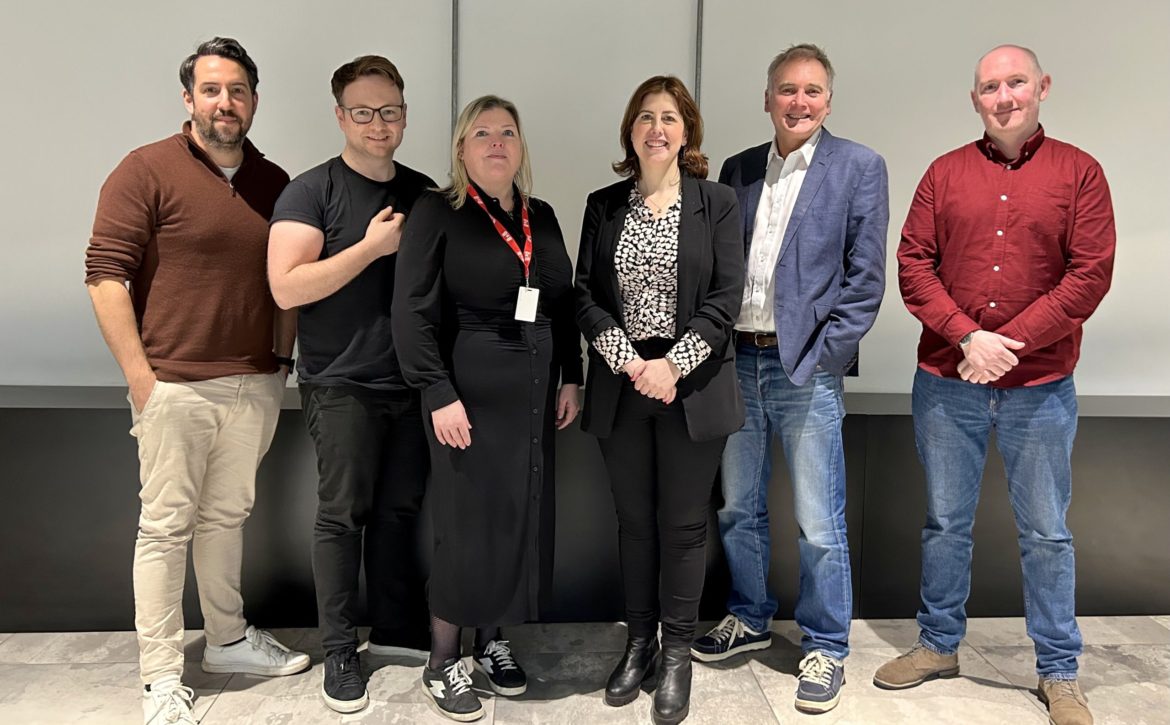Meeting Labour’s Shadow Secretary of State to discuss the growth of tech across the UK
The UK Tech Cluster Group (UKTCG) welcomed the Shadow Secretary of State Lucy Powell to Manchester Technology Centre for a meeting on the future of digital tech across the UK.
Lucy, who is also the MP for Manchester Central, talked about Labour’s upcoming plans for the digital economy. Katie Gallagher, MD of Manchester Digital and chair of the UKTCG, and group members provided insights from their work with businesses about what is needed to unlock the full potential of the tech economy right across the UK.
Lucy Powell outlined that as the official opposition, the Labour Party are keen to support all parts of the UK and ensure that digital regulation, data and AI policies nationally underpin the work of local and regional leadership and businesses across the UK in delivering a world-leading tech economy which works for all communities.
Lucy explained, “We are keen to work with the tech industry in all parts of the UK. With proper devolution, local leaders could design their own programmes and decide how funding is allocated without the expense and time of bidding to multiple fundings pots held in Whitehall.”
Phil Jones, director of innovation at Wired Sussex, said: “The ‘connective tissue’ of our local and regional ecosystems are crucial to driving innovation – both for high productivity businesses, and in the foundational economies. Through our work at the grassroots, we see practical ways to support more people and companies to benefit from the opportunities which the digital economy creates.
“As a sector, we are keen to help young people really understand the wide variety of career pathways within the industry with huge scope for progression. We also need a more supportive environment for the Angel sector, and a better way to connect early-stage start-ups with Angel investors. All of this would create a wider ‘connective tissue’ to support the growth of the tech industry.”
David Dunn, CEO at Sunderland Software City, agreed, “It’s really important that we reach into schools to help develop the tech pipeline. So we need to create more talent, from school age to ensure we have a growing pathway into the tech industry.”
Katie outlined some current limitations of the Apprenticeship Levy. “We would like to see the opportunities for smaller employers, who often don’t take on apprentices for fear of the unknown. It would be great to see an awareness campaign as well as some level of reform around how businesses can use the Levy.
“The funding that goes into Business Growth Hubs, for example, is for generic businesses, not specifically tech or startups. Devolution can help the tech sector as local leadership and their business community know where they need specific funding.”
Katie reiterated how important it was to include smaller tech clusters in wider programmes, otherwise they frequently miss out.
Phil added, “Engaging with partners on the ground who collectively understand industry needs and barriers to growth and inclusion, is crucial to ensuring all parts of the UK are able to share in the success of our tech sector.”
Yiannis Maos, CEO of Birmingham Tech, expanded on this, “We need to support our tech SMEs to reach their potential because that’s where growth happens. This also creates jobs in our communities and drives innovation across the economy.”
The UK Tech Cluster Group works with Government and Parliamentarians as well as local leadership, industry and partners within our clusters. Members are represented on the Government’s Digital Economy Council and Digital Skills Council and collaborate nationally to support the smart, sustainable and inclusive growth of the UK’s tech ecosystems.




